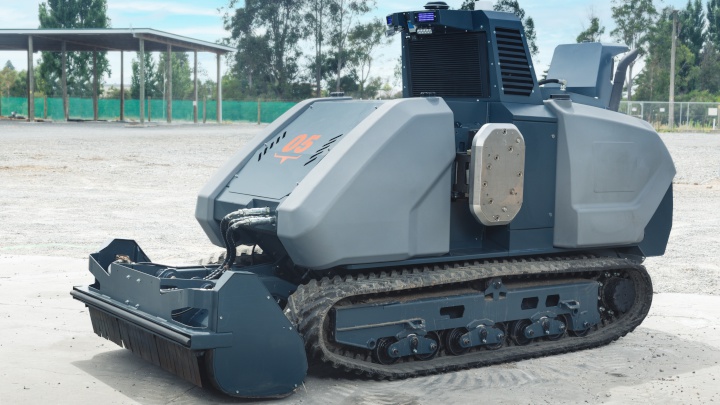Driverless, low emissions tractor in development
A driverless tractor able to perform up to three tasks at once is on the cards for New Zealand orchards.

The Government is contributing $622,360 through the Ministry for Primary Industries’ (MPI) Sustainable Food and Fibre Futures fund to develop a prototype tractor, which is set to transform the productivity of trellised orchards while reducing carbon emissions. The Smart Machine Company Limited is taking the lead on the three-year project, and is contributing a further $945,520.
“The tractor will be able to perform several tasks, including canopy spraying, mulching, mowing, trimming, and leaf defoliation,” says Steve Penno, MPI’s director of investment programmes.
“As well as lowering carbon emissions, we could expect to see reduced spray drift, and improved soil and tree health.
“By improving orchard productivity sustainably, we could increase the value of crops like apples by meeting the growing demand for products made with less impact on the environment.”
Smart Machine chief executive officer Andrew Kersley says the end goal is to develop a fully electric tractor. “While we want to go fully electric eventually, we need to be sure it will be suitable for remote rural areas. Some orchard tractors run 20 hours a day, seven days a week, so if growers have a fleet that needs frequent recharging that might not be practical.”
With this in mind, Smart Machine is working on a diesel hydraulic system with some electric components, with the view to converting to full electric further down the track.
Mr Kersley says Smart Machine researchers will adapt the learnings and technology from the successful testing of a tractor they developed for vineyards. This tractor was developed in collaboration with Pernod, with testing taking place on Pernod vineyards.
“The transition to developing an autonomous tractor for orchards isn’t a huge technological leap, as pipfruit growing environments with their 2D canopies are close to the way grapes are grown.”
Steve Penno says this project aligns with the Government’s Fit for a Better World roadmap to boost New Zealand’s recovery from COVID-19.
“Developing this low emissions alternative for orchards will help in our goal of shifting to a zero-carbon society, boost sustainability and also has the potential to increase export earnings.”
The project is based in Blenheim, with plans to expand testing to Motueka and Hawke’s Bay next year.


 Consumer NZ: This Mother’s Day, Give The Gift Of Scam Protection And Digital Confidence
Consumer NZ: This Mother’s Day, Give The Gift Of Scam Protection And Digital Confidence NZ Airports Association: Airlines And Airports Back Visa Simplification
NZ Airports Association: Airlines And Airports Back Visa Simplification Netsafe: Statement From Netsafe About Proposed Social Media Ban
Netsafe: Statement From Netsafe About Proposed Social Media Ban The Reserve Bank of New Zealand: 2024 General Insurance Stress Test Results Published Today
The Reserve Bank of New Zealand: 2024 General Insurance Stress Test Results Published Today  Worldline: School Holidays And Long Weekends Change Regional Spending Patterns In April
Worldline: School Holidays And Long Weekends Change Regional Spending Patterns In April Stats NZ: Livestock Numbers Fall Over The Last 10 Years While Area Planted In Fruit Increases
Stats NZ: Livestock Numbers Fall Over The Last 10 Years While Area Planted In Fruit Increases